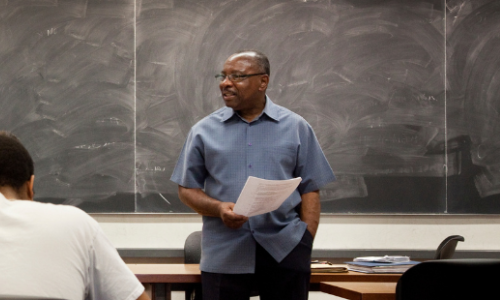
Ethics, Law & Society
This program provides students with a deeper understanding of ethical theories and their application in various social contexts; for example, it examines particular ethical issues concerning health care, the environment, legal systems, and political institutions.
Honours Bachelor of Arts
Program Plans
Plan your degree with these academic and co-curricular program overviews.
Tip Sheets
Learn more about further education, applying to jobs & more!
- Legislator
- Environmental Conservation Officer
- Lawyer
- Juvenile Justice Counsellor
- Criminologist
Admission Requirements
Life in Ethics, Law & Society
Buzz Around Campus
Sample Courses
Can machines think and feel? Are human beings simply very complicated organic machines? These questions are discussed in the light of recent work on the simulation of intelligence and purposive behaviour.
Zeno once convincingly argued that motion was impossible, but people continue to move. The "liar's paradox" seems to show that everything is both true and false, but that cannot be right. In this course, we will examine these and related issues.
Topics may include: Different approaches to the study of language; the analysis of central theoretical notions in the descriptions of language; the relation between philosophy of language and metaphysics.
Other Programs to Consider

Philosophy
Our philosophy program cultivates general intellectual virtues of critical thinking, clarity of thought, writing and communication, and creativity in approaching difficult problems. Our philosophical reflections are also guided by critical engagement with the views of great thinkers like Plato, Aristotle, Descartes, Hume, Kant, Hegel, Nietzsche, Quine, Kripke, and many others.

History & Political Science
This combined specialist program encourages students to understand the theories in History and Political science as complementary and contrasting to each other, in order to understand the society, culture, and governments. Students will take courses in both History and Political Science to meet the program requirements.

Criminology, Law & Society
The Criminology, Law & Society programs take an interdisciplinary approach to understanding and explaining law, crime and criminal justice. This permits students to use select courses in Anthropology, Forensic Science, Philosophy, Political Science, Sociology, Psychology, and Women and Gender Studies to satisfy program requirements.



